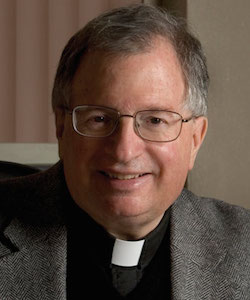
Development Challenges and Global Governance: The Long View
Joel Hellman | September 11, 2015
Responding To: SFS Dean Inaugurates Georgetown's Discussion of Global Governance
François Pazisnewende Kaboré
The World Bank and many other developing agencies acknowledge the “good news” of the global decline in extreme poverty by more than half between 1993 and 2011. Unfortunately other bad news darkens the horizon: social unrest, failed states and lack of governance, etc. During his visit to Ghana, in July 2009 and during the historic 2014 U.S-Africa summit, President Obama consistently reminded people that Africa needs strong institutions rather than strong men. The complexity of modern governance challenges is such that while devising global solutions one needs to act local. This is where Georgetown University has a unique advantage as a member of a major network in the modern world: the Jesuit tradition and the Jesuit nexus.
First, taken together, the Jesuit Refugee Service (JRS), the Jesuit Volunteers corps and Jesuit schools and universities constitute one of the most important networks on earth. The Jesuits understand themselves as global citizens: the world is their home. As such, there is no surprise that Georgetown positions itself nowadays as a global player with a vice presidency dedicated to Global Engagement in the pure Jesuit Tradition. Someone who currently builds on his Jesuit background in his management style is Pope Francis. In his recent encyclical titled “Ladato Si,” Pope Francis rightly portrays the earth as “our common house”. If the earth is our common house then each of us is concerned by what is happening to the earth. The migrant crisis in Europe and climate change are relevant examples of how poverty and underdevelopment anywhere is a threat to peace and development everywhere.
Second, Jesuits do not wear “habits,” because their “habits” are the “habit” of the local people with whom and for whom they work and dedicate their lives. While being global, Jesuits are aware that they ought to study and understand local cultures and realities. When it comes to solving poverty, what is at stake goes beyond the famous debate between Jeffrey Sachs (aid friendly) and William Easterly (market friendly). In that regards, Hellman is right suggesting something different. The current security issues in Africa and in other parts of Africa differ radically from what it used to be. In particular and among other things, the rise of non state actors puts a challenge on regular and traditional States to solve issues and threats posed by non states actors: religious radicals, economic transnational criminal organizations, etc. Such a situation requires a new thinking of the governance architecture of assistance.
If Georgetown University is faithful to the Jesuit tradition of “enculturation” i.e., being imbedded in the local culture, and if it could build on the Jesuit tradition and nexus, it could train and inspire young men and women who would make a difference in the world’s affairs, in peace, security and development because while thinking global they know how to act local.
François Pazisnewende Kaboré, S.J. is a Jesuit priest from Burkina Faso and is the deputy director and academic secretary of the Jesuit University Institute.

Joel Hellman | September 11, 2015

Desha Girod | September 10, 2015

Drew Christiansen | September 10, 2015

Emmanuel Foro | September 10, 2015

Erwin Tiongson | September 10, 2015

Fr. Kevin O'Brien | September 10, 2015
James Vreeland | September 10, 2015

Justin Rattey | September 10, 2015

Katherine Marshall | September 10, 2015

Marc Busch | September 10, 2015

Marion Abboud | September 10, 2015

Patrice Ndayisenga | September 10, 2015

Tobias Vestner | September 10, 2015

Shareen Joshi | September 9, 2015